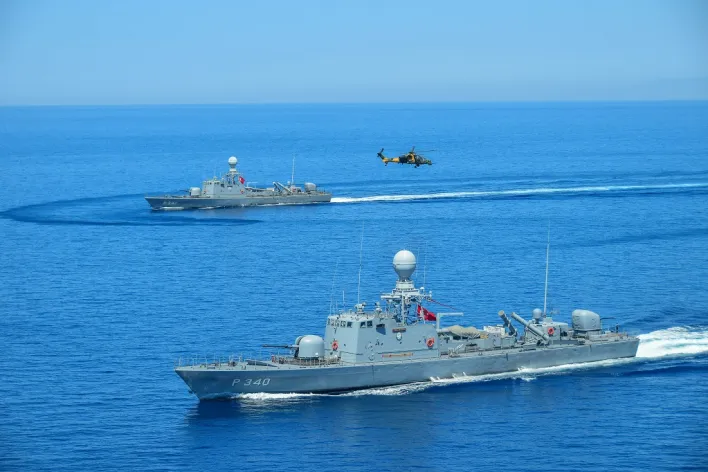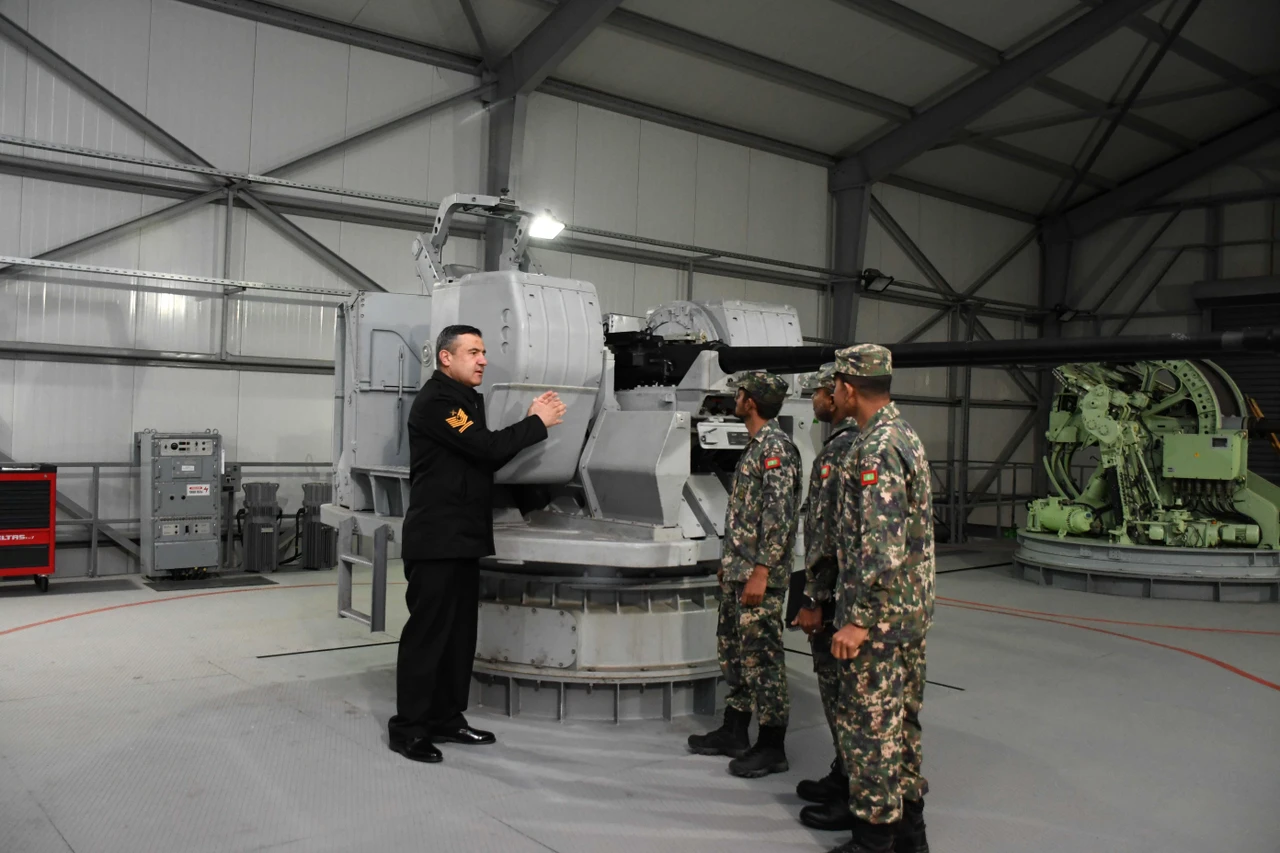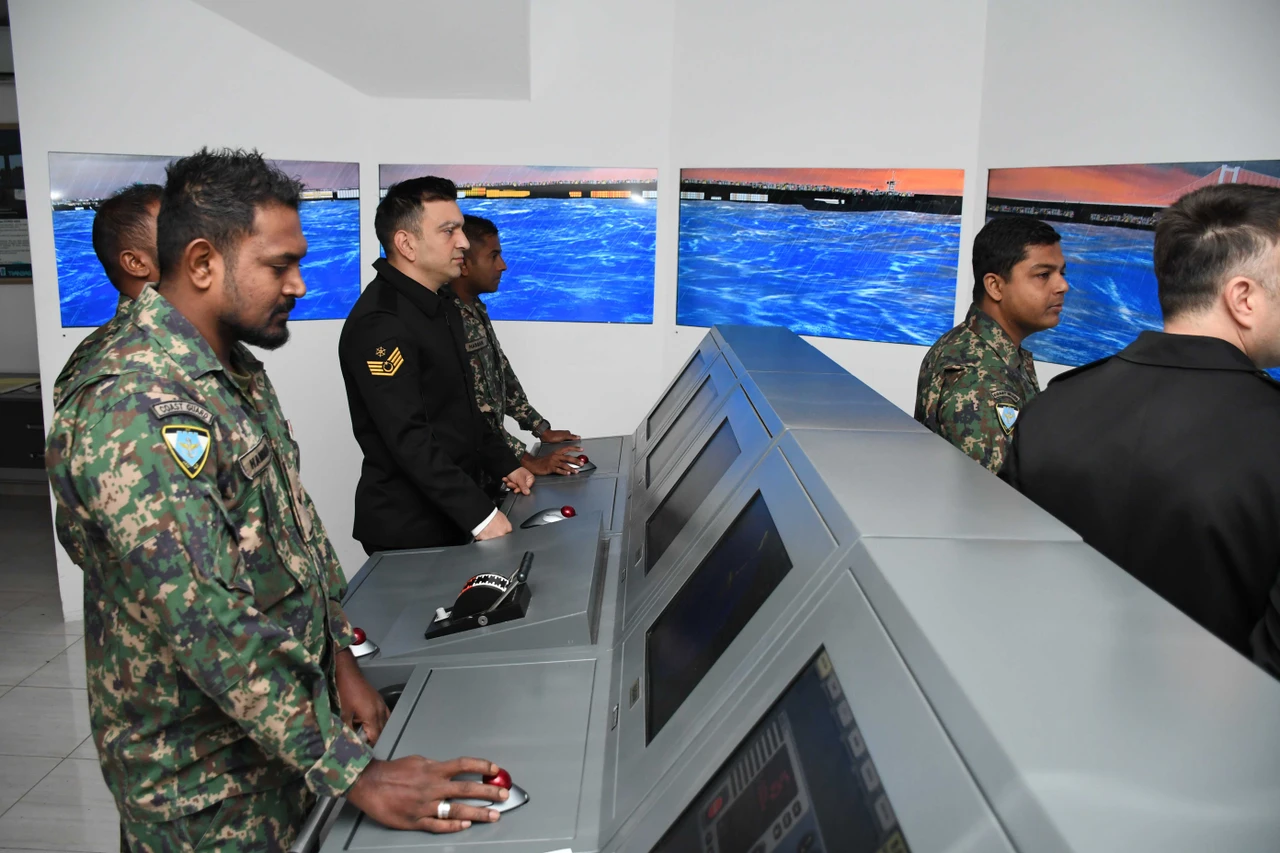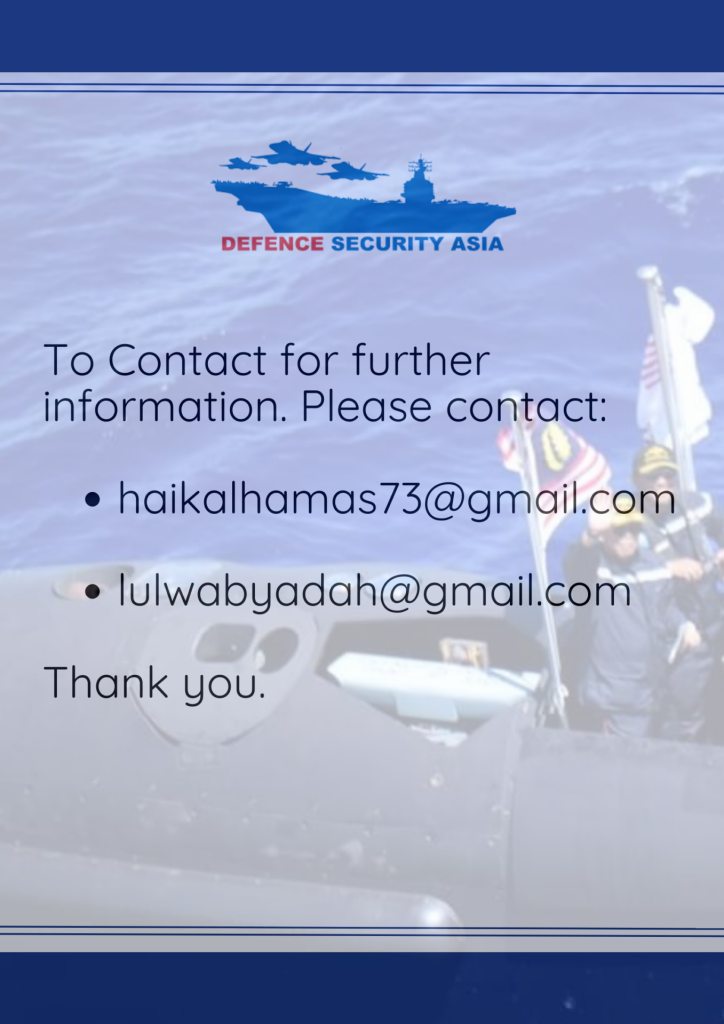Strategic Turbulence: Maldives Embraces Turkish Firepower, Rattling New Delhi
New Delhi has grown increasingly vocal in its criticism of the Maldives' evolving defence ties with Türkiye and China, viewing both countries as assertive challengers to India’s traditional sphere of influence in South Asia and the Indian Ocean Region (IOR).
(DEFENCE SECURITY ASIA) — Türkiye’s donation of a Dogan-class fast attack missile boat, the TCG Volkan (P-343), to the Maldives has sent ripples across the Indian Ocean’s strategic landscape, drawing sharp attention from India as it watches Malé deepen its military cooperation with both Ankara and Beijing.
New Delhi has grown increasingly vocal in its criticism of the Maldives’ evolving defence ties with Türkiye and China, viewing both countries as assertive challengers to India’s traditional sphere of influence in South Asia and the Indian Ocean Region (IOR).
According to sources within Türkiye’s Ministry of National Defence, the transfer of the missile-equipped vessel is part of a broader defence cooperation framework formalized through a Memorandum of Understanding (MoU) designed to bolster Malé’s maritime security through hardware support and skill-building initiatives.
The TCG Volkan, prior to its handover, underwent extensive refurbishment and upgrades at the Istanbul Naval Shipyard Command to ensure operational readiness for its new theatre of deployment.
The vessel is slated to be delivered to Maldivian authorities between April and June 2025 via a Turkish dock landing ship, with its commissioning scheduled to be led by an official team from the Turkish Navy.
To prepare for its activation, Maldivian naval personnel began technical and operational training in Türkiye on April 7, a program that will conclude on May 9, laying the groundwork for full-spectrum mission capability.
Following its arrival in Maldivian waters, the Turkish Navy will remain engaged for an additional two weeks, delivering advanced onboard instruction to familiarise the Maldivian crew with the vessel’s combat systems and tactical employment.

The Dogan-class fast attack craft, designed by German shipbuilder Lürssen Werft, represents a significant milestone in Turkish naval modernisation, being the first platform in the Turkish fleet to integrate the U.S.-designed Harpoon anti-ship missile system, which offers over-the-horizon strike capabilities and high lethality in maritime engagements.
The military transfer comes amid a sharp deterioration in Indo-Maldivian relations, ignited by a series of politically charged episodes that have strained diplomatic goodwill between the two close maritime neighbours.
In early 2024, a diplomatic firestorm erupted when several Maldivian officials made disparaging remarks about Indian Prime Minister Narendra Modi, prompting outrage across India and a widespread social media-led tourism boycott campaign against the Maldives.
The Maldivian government quickly moved to contain the fallout by suspending the officials involved and issuing public statements distancing the administration from the controversial remarks.
Yet bilateral tensions only deepened following the election of President Mohamed Muizzu, widely viewed as pro-China, who swiftly called for the withdrawal of Indian military personnel stationed in the Maldives — a move seen as a direct repudiation of India’s long-standing strategic footprint in the archipelago.
By May 2024, India had acquiesced, replacing its uniformed military presence with civilian technicians to operate Indian-donated aircraft used for humanitarian and maritime surveillance missions in the Maldives.

India’s strategic unease has been further aggravated by the Maldives’ acquisition of Turkish-built Bayraktar TB2 unmanned combat aerial vehicles (UCAVs), which will be used to patrol the country’s expansive Exclusive Economic Zone (EEZ) spanning approximately 900,000 square kilometres.
The armed drones — delivered on March 3 — are stationed at Maafaru International Airport in Noonu Atoll under a US$37 million defence procurement agreement with Baykar Technology, Türkiye’s leading drone manufacturer.
With no significant military or intelligence cooperation with Ankara, Indian defence officials have expressed concern over the potential implications of Turkish-supplied combat drones being operated so close to India’s southern maritime boundary.
Adding fuel to the fire, Malé has signalled its intent to procure additional surveillance drones from China, following President Muizzu’s state visit to Beijing last year, a development that could further tilt the country’s defence posture away from Indian influence.
Muizzu’s foreign policy trajectory has remained closely aligned with his campaign pledge to reduce Indian military presence — encapsulated in the nationalist slogan “India Out” — which resonated with a large segment of the Maldivian electorate and ultimately helped propel him to the presidency.
The expulsion of nearly 80 Indian troops from the Maldives in 2024 marked a major strategic inflection point in the Indian Ocean security equation, breaking a longstanding defence cooperation tradition under which India had operated and maintained key aerial assets in Malé for search and rescue and disaster relief operations.


In response to this shifting security calculus, India expedited the commissioning of a new naval outpost — INS Jatayu — located on Minicoy Island in the Lakshadweep archipelago, just north of the Maldives, reinforcing its forward presence in a region of mounting geostrategic competition.
INS Jatayu is equipped with advanced radar systems, warships, and launchers for the supersonic BrahMos cruise missile, serving as a critical node in India’s effort to monitor and deter Chinese naval expansion across the Indian Ocean.
The base forms part of a broader Indian naval doctrine aimed at safeguarding key sea lanes of communication (SLOCs) and counterbalancing the growing footprint of the People’s Liberation Army Navy (PLAN), which has become increasingly active in the IOR.
Over the past decade, China has steadily expanded its strategic reach across the Indian Ocean through the development of dual-use port infrastructure, soft-loan diplomacy, and defence partnerships with littoral states, raising concerns in New Delhi and Western security circles.

The Maldives has now become a key flashpoint in this regional power struggle, as it straddles vital maritime routes and sits at the crossroads of major Indo-Pacific trade corridors, making it a geopolitical prize courted by both India and China.
As competition intensifies over influence in Malé, the donation of a Turkish warship and the deployment of armed drones signal that the Indian Ocean’s next great rivalry may no longer be confined to Beijing and New Delhi — but could increasingly include Ankara as a new and assertive player in South Asia’s maritime equation.
— DEFENCE SECURITY ASIA


